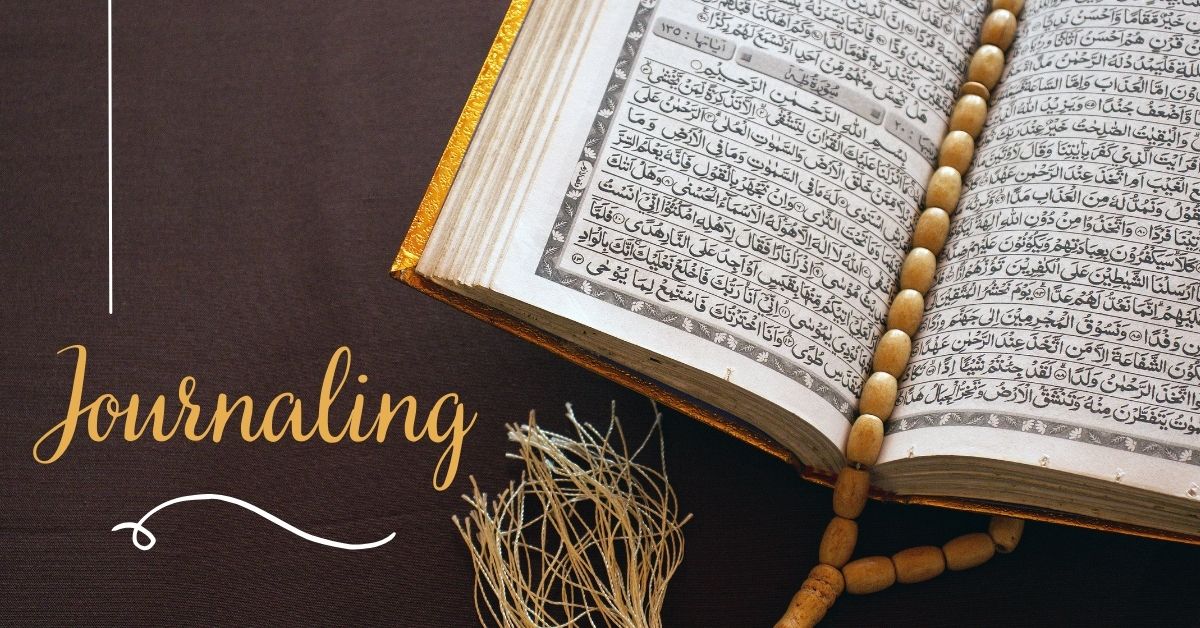Quran Journaling: Practical Ways to Reflect on Verses
In today’s fast-paced world, many of us feel the need to slow down, reconnect with our faith, and truly understand the words of Allah. One powerful practice that has been growing in popularity is Quran journaling. It’s not just about reading; it’s about engaging, reflecting, and allowing the Qur’an to transform our hearts and lives.
Whether you’re new to journaling or already keep a notebook of reflections, this guide will walk you through practical ways to make Quran journaling a meaningful and sustainable habit.
What is Quran Journaling?
At its core, Quran journaling is the practice of writing down your thoughts, reflections, and learnings while reading the Qur’an. Instead of rushing through pages, you pause, reflect on a verse, and jot down what it means to you.
It’s not about tafseer (scholarly exegesis) — unless you’re studying with scholars. Rather, it’s a personal process of connecting with the verses, asking how they apply to your life, and recording your journey with the Qur’an.
Think of it as a way of having a conversation with the words of Allah — where you listen deeply and then respond with your pen.
Why Quran Journaling is Powerful
-
Deepens understanding – Writing slows you down and forces you to really think about what you’re reading.
-
Strengthens memory – When you write something, you’re more likely to remember it.
-
Increases focus – Journaling keeps distractions away and helps you stay present with the Qur’an.
-
Creates a spiritual diary – Over time, your Quran journaling notes become a record of your faith journey.
-
Encourages action – By reflecting, you naturally ask yourself: “How can I live this verse today?”

How to Start Quran Journaling
Starting Quran journaling doesn’t need to be complicated. Here are some simple steps to help you begin:
1. Choose Your Tools
Some people love using a plain notebook, others prefer a decorated journal, and some even use digital apps. The best tool is the one you’ll actually use.
2. Set a Time and Place
Consistency matters more than duration. Even 10 minutes a day can bring huge benefits if done regularly. Pick a quiet time — maybe after Fajr or before bed — to make Quran journaling part of your routine.
3. Begin with Intention (Niyyah)
Before you start, make a sincere intention that you’re journaling to seek closeness to Allah and to better live by His words.
4. Pick a Verse or Passage
Don’t feel pressured to cover entire chapters at once. Sometimes reflecting on just one ayah can bring more insight than rushing through a whole surah.
5. Reflect and Write
Ask yourself:
-
What is Allah teaching me here?
-
How does this verse apply to my life right now?
-
Is there a change I need to make because of this verse?
Write freely. There’s no right or wrong way in Quran journaling.
Practical Techniques for Quran Journaling
Here are a few methods you can try to make your reflections deeper and more meaningful:
1. The Reflection Method
Write the verse in Arabic (or its translation) and then write your thoughts on it. For example:
Verse: “Indeed, with hardship [will be] ease.” (Qur’an 94:6)
Reflection: This reminds me that my current struggles at work are temporary. I need to trust Allah’s wisdom and look for the ease He has promised.
2. The Question Method
Turn the verse into questions for yourself. For example:
-
What is Allah asking me to do here?
-
Am I living according to this guidance?
-
How can I apply this verse today?
3. The Action Step Method
After writing reflections, write one action you’ll take. Example: If you reflect on a verse about gratitude, your action step could be to write a list of blessings every night.
4. The Creative Method
Some people enjoy adding drawings, colors, or calligraphy to their Quran journaling. If you’re a creative soul, let your journal become a visual expression of your reflections.
5. The Dua Method
End each reflection with a personal dua related to the verse. This makes your journaling interactive and heart-centered.
Overcoming Common Struggles in Quran Journaling
Even with the best intentions, you might face obstacles. Here are some common struggles and how to overcome them:
-
“I don’t know enough Arabic.”
Use a reliable translation. Quran journaling is about reflection, not scholarly tafseer. -
“I don’t have enough time.”
Start small. Even 5 minutes a day is powerful if done with sincerity. -
“I don’t know what to write.”
Just write your raw thoughts. Even a few sentences of how the verse makes you feel is valuable. -
“I’m not consistent.”
Tie it to an existing habit — for example, journaling right after salah or Qur’an recitation.
Benefits of Quran Journaling in Daily Life
Over time, Quran journaling will transform the way you see and experience the Qur’an. Some benefits you’ll notice:
-
Increased mindfulness – You start recognizing verses in your daily life situations.
-
Greater patience – Verses about trials and trust in Allah feel more personal.
-
Better character – Reflecting on akhlaq-related verses inspires real change.
-
Stronger connection – Your relationship with the Qur’an becomes heart-to-heart, not just mind-to-text.
Tips for Making Quran Journaling Sustainable
-
Don’t aim for perfection – Your journal doesn’t have to be pretty; it just has to be honest.
-
Be consistent, not exhaustive – Small steps done daily are more valuable than occasional long reflections.
-
Revisit your past entries – Sometimes a verse you wrote about months ago will hit you differently when you reread it.
-
Share (if you want to) – Some people find joy in sharing their reflections with a close friend or study circle, while others prefer keeping it private. Both are fine.
-
Make it personal – Remember, Quran journaling is your intimate journey with Allah’s words. It doesn’t need to look like anyone else’s.
A Simple Quran Journaling Routine
Here’s a quick example of how a 10–15 minute Quran journaling session might look:
-
Begin with Bismillah and make dua for guidance.
-
Read a short passage (1–3 ayahs).
-
Write the verse or its translation.
-
Reflect: What stands out? What do I feel?
-
Write an action step or dua.
-
Close by thanking Allah for the opportunity.
Conclusion: Quran Journaling as a Lifelong Journey
The Qur’an is a timeless guide, and Quran journaling is a way to bring its light into our everyday lives. By writing, reflecting, and applying, we allow the words of Allah to penetrate deeper into our hearts and actions.
Remember, it’s not about the beauty of your handwriting or the length of your notes. It’s about sincerity, consistency, and allowing the Qur’an to transform you, one verse at a time.
So grab a pen, open your Qur’an, and start your journey today. Your Quran journaling could become one of the most meaningful acts of worship in your life.
You may also like Tafseer Series: Reflections on Short Surahs -2025

